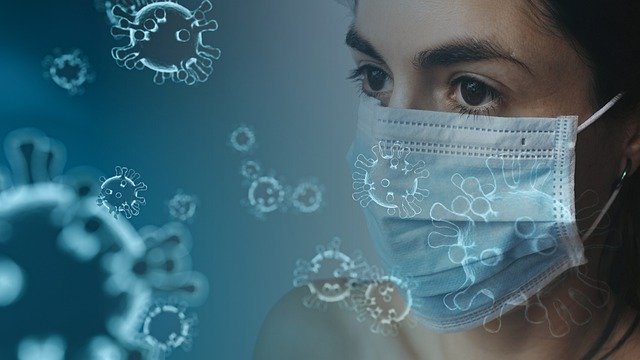Will the mania of sanitizing surfaces really save us from Covid? Nyt report

Scientists are increasingly saying that there is little or no evidence that contaminated surfaces can spread Covid. The NYT Report
At the deserted Hong Kong airport, cleaners constantly spray luggage carts, elevator buttons and check-in counters with antimicrobial solutions. In New York City, workers continually disinfect bus and subway surfaces. In London, many pubs have spent a lot of money on intensive surface cleaning to reopen after the lockdown – before closing again in November.
Around the world, workers soap, clean and fumigate surfaces with a sense of urgency: to fight the coronavirus. But scientists increasingly say that there is little or no evidence that contaminated surfaces can spread the virus. In crowded indoor spaces like airports, they say, the virus that is exhaled by infected people and remains in the air is a much greater threat, the NYT writes.
Washing your hands with soap and water for 20 seconds – or disinfectant in the absence of soap – is still encouraged to stop the spread of the virus. But cleaning surfaces does little to mitigate the threat of the virus inside indoor environments, experts say, and health officials have been urged to focus instead on improving indoor air ventilation and filtration.
"In my opinion, a lot of time, energy and money are wasted on disinfecting surfaces and, more importantly, diverting attention and resources from preventing airborne transmission," said Dr. Kevin P. Fennelly, a respiratory infection specialist from the United States National Institutes of Health.
A FALSE SENSE OF SECURITY
Some experts suggest that Hong Kong, a crowded city of 7.5 million and with a long history of infectious disease outbreaks, is a case study for the kind of surface cleansing that gives ordinary people a false sense of security. on the coronavirus.
The Hong Kong Airport Authority used a "whole body disinfection channel," similar to a telephone booth, to spray airport personnel into quarantine areas. The stand – which the airport says is the first in the world and is used on trial only on its staff – is part of an all-out effort to make the facility a "safe environment for all users".
Such contraptions can be comforting to the public because they appear to show local officials are leading the fight to Covid-19. But Shelly Miller, an aerosol expert at the University of Colorado Boulder, said the booth doesn't make any practical sense from an infection control perspective.
Viruses are released through activities that spray respiratory droplets – talking, breathing, screaming, coughing, singing, and sneezing. And disinfectant sprays are often made from toxic chemicals that can significantly affect indoor air quality and human health, Dr. Miller said.
"I can't understand why anyone would think that disinfecting an entire person would reduce the risk of transmitting the virus," he said.
THE THEATER OF HYGIENE
A number of respiratory ailments, including the common cold and the flu, are caused by germs that can spread from contaminated surfaces. Thus, when the coronavirus outbreak emerged last winter in mainland China, it seemed logical to assume that these so-called fomites were a primary means of spreading the pathogen.
Studies soon found that the virus appeared to survive on some surfaces, including plastic and steel, for up to three days. (Subsequent studies have shown that much of these are likely dead fragments of the virus that are not infectious.)
The World Health Organization had also stressed that surface transmission is a risk, and said airborne spread is a concern only when healthcare workers are engaged in certain medical procedures that produce aerosols.
But the scientific evidence was growing and the virus can hang for hours in tiny droplets of stagnant air, infecting people when inhaling – particularly in crowded, poorly ventilated indoor spaces.
In July, an essay in the medical journal The Lancet argued that some scientists had exaggerated the risk of surface coronavirus infection without considering evidence from studies by its closely related cousins, including SARS-CoV, the engine of the outbreak. SARS of 2002-03.
"This is extremely strong evidence that at least for the original SARS virus, fomite transmission was much less," said the paper's author, microbiologist Emanuel Goldman of Rutgers University, in an email. "There is no reason to expect close relative SARS-CoV-2 to behave significantly differently in this type of experiment," he added, referring to the novel coronavirus.
A few days after the publication of Dr. Goldman's essay, more than 200 scientists asked WHO to acknowledge that the coronavirus can spread by air to any indoor environment. Bowing to enormous public pressure on the matter, the agency acknowledged that indoor aerosol transmission could lead to epidemics in poorly ventilated indoor locations such as restaurants, nightclubs, offices and places of worship.
In October, the Centers for Disease Control and Prevention, which since May argued that surfaces are not "the primary way of spreading the virus," said the transmission of infectious respiratory drops was the "primary way" by which it spread. .
But by now the paranoia of touching everything from handrails to shopping bags had already started. And the instinct to scrub surfaces as a Covid precaution – “theater of hygiene”, as The Atlantic magazine calls it – was already deeply rooted.
DO NOT TOUCH
From Nairobi to Milan to Seoul, cleaners in protective suits spray public areas everywhere despite WHO warnings that chemicals could do more harm than good.
Procter & Gamble said sales of its personal cleaning products grew by more than 30% in the quarter that ended in September, with double-digit growth in every region of the world, including more than 20% in the large. China.
(Extract from the foreign press review by Epr Comunicazione)
This is a machine translation from Italian language of a post published on Start Magazine at the URL https://www.startmag.it/sanita/la-mania-di-igienizzare-le-superfici-ci-salvera-davvero-dal-covid-report-nyt/ on Sat, 21 Nov 2020 06:04:20 +0000.
